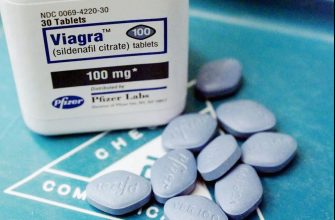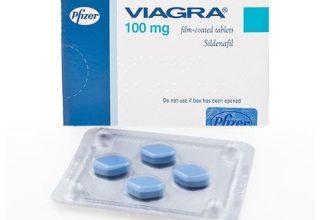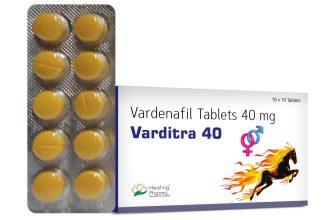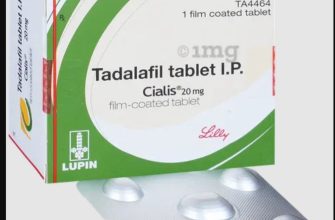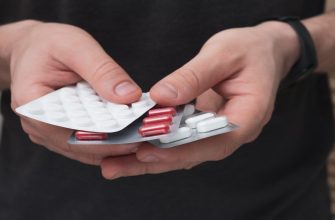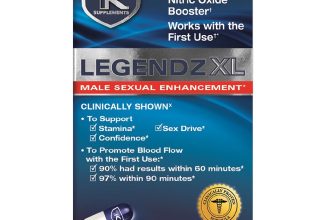Always follow your doctor’s instructions precisely. Never adjust the dosage without consulting them. The typical Deltasone dose pack contains 21 tablets, each with a varying dosage of prednisone. You’ll likely begin with a higher dose and gradually decrease it over six to ten days.
Each tablet is individually marked with the correct amount of prednisone, ensuring you take the right dose at the right time. Carefully follow the printed schedule on the pack or the specific instructions provided by your physician. Consistent adherence to this schedule is key to effective treatment.
Take the medication with food to reduce potential stomach upset. Drinking plenty of water throughout the day can help your body process the medication and stay hydrated. Avoid alcohol and caffeine while taking Deltasone, as these can interact with the drug.
Monitor for potential side effects, such as increased appetite, mood changes, insomnia, or fluid retention. Report any unusual symptoms or adverse reactions to your doctor immediately. They can adjust your treatment plan or provide supportive care if needed. Remember, individual responses vary.
Store your Deltasone dose pack in a cool, dry place, away from direct sunlight and moisture. Keep it out of reach of children. Discard any remaining medication appropriately once the course is complete, following your pharmacist’s guidelines for proper disposal.
- Understanding Your Deltasone Dose Pack
- What is a Deltasone Dose Pack?
- How to Properly Take Deltasone Tablets
- Common Side Effects of Deltasone
- Gastrointestinal Effects
- Other Potential Side Effects
- Important Precautions and Warnings
- Medication Interactions
- Potential Side Effects
- Dosage Changes
- Monitoring
- Specific Conditions
- Interactions with Other Medications
- Medications That May Increase Deltasone’s Effects
- Medications Affected by Deltasone
- Things to Discuss With Your Doctor
- Missed Dose Instructions
- When to Contact Your Doctor
- Storage and Disposal of Deltasone
- Frequently Asked Questions about Deltasone Dose Packs
- Taking Your Medication
- Long-Term Implications
Understanding Your Deltasone Dose Pack
Your Deltasone dose pack is a pre-packaged course of prednisone, a corticosteroid. Each pack contains a specific number of tablets, each with a different dosage. Follow the directions precisely; don’t skip doses or alter the schedule.
The tablets are usually color-coded to indicate the dosage for each day. Begin with the highest dosage tablet and continue taking the tablets in the prescribed order, one per day. Typically, you’ll reduce the dose gradually over several days.
Pay close attention to the printed instructions accompanying your pack. They provide the specific dosage and schedule for your situation. These instructions are tailored to your individual needs.
Common side effects include increased appetite, weight gain, mood changes, and sleep disturbances. If you experience severe side effects, contact your doctor immediately. Mild side effects often subside as the dosage decreases.
| Day | Dosage | Tablet Color (Example) |
|---|---|---|
| 1 | 25mg | White |
| 2 | 25mg | White |
| 3 | 20mg | Light Yellow |
| 4 | 15mg | Yellow |
| 5 | 10mg | Dark Yellow |
| 6 | 5mg | Orange |
| 7 | 5mg | Orange |
Note: The table above is a *sample* schedule. Your actual pack may have a different dosage schedule and color-coding. Always consult your doctor’s instructions. Store the medication in a cool, dry place out of reach of children. Never share your medication with others.
What is a Deltasone Dose Pack?
A Deltasone dose pack is a convenient pre-packaged medication containing prednisone, a corticosteroid. It’s designed for short-term treatment of inflammation, allergies, or other conditions requiring a tapering dose of prednisone.
The pack typically includes a decreasing number of pills for each day, ensuring you gradually reduce your dosage. This reduces the risk of withdrawal symptoms.
- Typical Pack Content: A common dose pack contains 21 tablets, with higher doses in the initial days.
- Dosage Schedule: You’ll usually start with a higher dose and gradually decrease it over several days, as directed by your doctor.
- Important Note: Never alter the dosage or stop taking the medication without consulting your doctor.
Each pack provides a precise schedule to ensure you adhere to the prescribed tapering regimen. This minimizes side effects associated with abrupt cessation of prednisone.
- Follow Instructions Carefully: Pay close attention to your doctor’s instructions and the medication’s label.
- Common Uses: Deltasone dose packs commonly treat conditions such as allergic rhinitis, inflammation, and flare-ups of autoimmune diseases.
- Potential Side Effects: Although convenient, be aware of potential side effects like insomnia, increased appetite, mood changes, and others. Report any significant side effects to your doctor immediately.
Remember, this information is for general knowledge only and does not substitute professional medical advice. Always consult your physician before taking any medication, including a Deltasone dose pack, and follow their instructions precisely.
How to Properly Take Deltasone Tablets
Always follow your doctor’s prescribed dosage and instructions. Never adjust the dosage yourself.
Take Deltasone tablets with a full glass of water. This aids absorption and minimizes stomach upset.
Take the tablets at the same time each day, ideally in the morning. Consistent timing helps maintain consistent levels of medication in your bloodstream.
Swallow the tablets whole. Do not crush, chew, or break them. This ensures proper absorption and prevents irritation of the mouth and throat.
If you miss a dose, take it as soon as you remember, unless it’s almost time for your next dose. Do not double up on doses to make up for a missed one.
Store your Deltasone tablets in a cool, dry place, away from direct sunlight and moisture. Keep them out of reach of children.
Report any unusual side effects to your doctor or pharmacist immediately. These could include, but are not limited to, stomach upset, changes in mood, or swelling.
Finish the entire course of medication prescribed by your doctor, even if you feel better before you run out. Stopping early may allow the condition to return.
Always consult your doctor or pharmacist before taking Deltasone with other medications or supplements. Some interactions can be harmful.
Common Side Effects of Deltasone
Deltasone, a brand name for prednisone, a corticosteroid, can cause various side effects. These vary in severity and frequency depending on the dosage and duration of treatment. Commonly reported side effects include increased appetite leading to weight gain, fluid retention causing swelling (edema), especially in the face and ankles, and mood changes ranging from irritability to anxiety or even depression. Some individuals experience insomnia or difficulty sleeping.
Gastrointestinal Effects
Stomach upset, such as heartburn, nausea, and vomiting, is relatively common. More serious gastrointestinal problems, including ulcers and increased risk of bleeding, are possible, although less frequent. If you experience severe stomach pain or notice blood in your stool, contact your doctor immediately.
Other Potential Side Effects
Increased blood sugar levels are a concern, especially for people with diabetes. High blood pressure is another potential side effect. Skin changes like thinning of the skin, bruising, and acne can occur. In rare instances, more serious side effects, such as muscle weakness, osteoporosis, and cataracts, can develop with prolonged use. Remember to discuss any concerns with your physician.
Important Precautions and Warnings
Avoid alcohol while taking Deltasone. Alcohol can increase the risk of stomach upset and interact negatively with the medication.
Report any unusual bruising or bleeding to your doctor immediately. Deltasone can thin your blood, increasing the risk of bleeding complications.
Medication Interactions
Inform your doctor about all medications you are taking, including over-the-counter drugs, supplements, and herbal remedies. Some medications can interact with Deltasone, potentially causing adverse effects. This includes aspirin and other NSAIDs.
Potential Side Effects
Watch for signs of infection, such as fever, chills, or sore throat. Deltasone can suppress your immune system, making you more susceptible to infections.
Monitor your blood sugar levels, especially if you have diabetes. Deltasone can affect blood sugar control.
Contact your doctor immediately if you experience severe side effects such as severe stomach pain, difficulty breathing, or swelling of the face, lips, or tongue. These could indicate a serious allergic reaction.
Dosage Changes
Never adjust your dosage without consulting your doctor. Stopping the medication abruptly or changing the dosage without medical supervision can have negative consequences.
Monitoring
Schedule regular check-ups with your doctor to monitor your progress and address any concerns. Your doctor will assess your response to the medication and make necessary adjustments to your treatment plan.
Specific Conditions
Individuals with certain conditions, such as heart failure, glaucoma, high blood pressure, liver or kidney disease, osteoporosis, diabetes, or mental health issues, require special precautions. Consult your doctor before using Deltasone if you have any of these conditions.
Interactions with Other Medications
Always inform your doctor about all medications you are taking, including over-the-counter drugs, supplements, and herbal remedies, before starting a Deltasone dose pack. This includes prescription medications, like those for diabetes, heart conditions, or high blood pressure.
Medications That May Increase Deltasone’s Effects
- Other steroids: Combining Deltasone with other corticosteroids (like prednisone or methylprednisolone) significantly increases the risk of side effects. Your doctor will carefully manage your dosage.
- Potassium-wasting diuretics: Medications such as furosemide or hydrochlorothiazide can increase potassium loss, potentially leading to low potassium levels (hypokalemia). Your doctor might monitor your potassium levels regularly.
- Digoxin: Deltasone can increase the risk of digoxin toxicity. Close monitoring of digoxin levels is often necessary.
Medications Affected by Deltasone
- Insulin and oral diabetes medications: Deltasone can raise blood sugar levels, necessitating adjustments to your diabetes medication. Your doctor may adjust your insulin or oral medication dosage during and after Deltasone treatment.
- Blood thinners (anticoagulants): Deltasone might affect the effectiveness of anticoagulants like warfarin. Regular blood tests will monitor your clotting time.
- Nonsteroidal anti-inflammatory drugs (NSAIDs): Combining Deltasone and NSAIDs (ibuprofen, naproxen) increases the risk of stomach ulcers and bleeding. Your doctor may recommend alternatives.
This list isn’t exhaustive. Always consult your doctor or pharmacist before mixing Deltasone with other medications to prevent potential drug interactions and ensure your safety. They can provide personalized advice and guidance.
Things to Discuss With Your Doctor
- All medications and supplements you’re currently taking
- Any allergies or medical conditions you have
- Any changes in your health status while taking Deltasone
Proactive communication with your healthcare provider is key for safe and effective treatment.
Missed Dose Instructions
If you miss a dose, take it as soon as you remember unless it’s almost time for your next dose. Never double up on doses. If you’re unsure about what to do, contact your doctor or pharmacist immediately for personalized advice. They can provide the most accurate guidance based on your specific situation and medication.
Consistent medication intake is key to effective treatment. Maintain a regular schedule to maximize the benefits of Deltasone. Using a pill organizer or setting reminders can help you stay on track. Always follow your doctor’s prescribed dosage instructions precisely.
Unexpected missed doses happen. Don’t panic. Simply follow the guidance above and contact your healthcare provider for any concerns regarding missed doses or medication adjustments.
When to Contact Your Doctor
Contact your doctor immediately if you experience severe allergic reactions, such as difficulty breathing, swelling of your face, lips, or tongue, or hives. These are serious symptoms requiring immediate medical attention.
Report any signs of infection, like fever, chills, or persistent sore throat, to your physician. This is particularly important while taking Deltasone.
If you notice unusual bruising or bleeding, contact your doctor. This could be a sign of a problem with your blood clotting.
Changes in your mood, such as increased anxiety or depression, warrant a call to your healthcare provider. They can assess if your medication is contributing to these changes.
Persistent stomach upset, including severe nausea, vomiting, or diarrhea, needs medical attention. These symptoms can be a side effect of Deltasone and may require adjustments to your treatment.
Report any vision changes, such as blurred vision or double vision, without delay. Your doctor should evaluate your eye health.
If you experience increased thirst or frequent urination, contact your doctor. This could be a sign of high blood sugar.
Don’t hesitate to reach out if you have any concerns about your medication or develop any unexpected symptoms. Your doctor can provide personalized advice and manage your treatment effectively.
Storage and Disposal of Deltasone
Store Deltasone at room temperature, between 68°F and 77°F (20°C and 25°C). Protect it from moisture and light. Keep the medication in its original container.
Once you’ve finished your dose pack, dispose of any leftover medication safely. Never flush medication down the toilet. Instead, use a medication disposal program or mix the pills with undesirable substances like used coffee grounds or kitty litter. Seal the mixture in a sturdy container before discarding it in the trash.
Check with your local pharmacist or trash disposal service for specific disposal guidelines in your area. They can provide further information on safe and responsible medication disposal options.
Frequently Asked Questions about Deltasone Dose Packs
Q: How long does a Deltasone dose pack treatment typically last? A typical Deltasone dose pack contains medication for 6 days. You’ll take a decreasing amount of prednisone each day according to the pack’s instructions.
Q: What are the common side effects? Some patients experience increased appetite, indigestion, trouble sleeping, or mood changes. More serious side effects are rare but include high blood pressure and increased blood sugar. Report any concerning symptoms to your doctor.
Q: Can I drink alcohol while taking a Deltasone dose pack? It’s best to avoid alcohol while on prednisone, as it can increase the risk of stomach upset and interact with the medication. Discuss this with your physician.
Taking Your Medication
Q: What if I miss a dose? Take the missed dose as soon as you remember, unless it’s almost time for your next dose. Don’t double up on doses. If you have questions, consult your pharmacist or doctor.
Q: Can I stop taking the pack early if I feel better? No. Complete the entire course as prescribed by your doctor, even if symptoms improve. Stopping early can cause your symptoms to return or worsen.
Long-Term Implications
Q: Are there long-term effects from using a Deltasone dose pack? Generally, a short course of prednisone from a dose pack has minimal long-term effects. However, long-term or high-dose prednisone use carries more risks. Your doctor will discuss the risks and benefits.
Q: Should I discuss this medication with my other healthcare providers? Yes. Inform all your healthcare providers, including dentists and other specialists, that you are using a Deltasone dose pack. This ensures comprehensive care and minimizes potential drug interactions.



